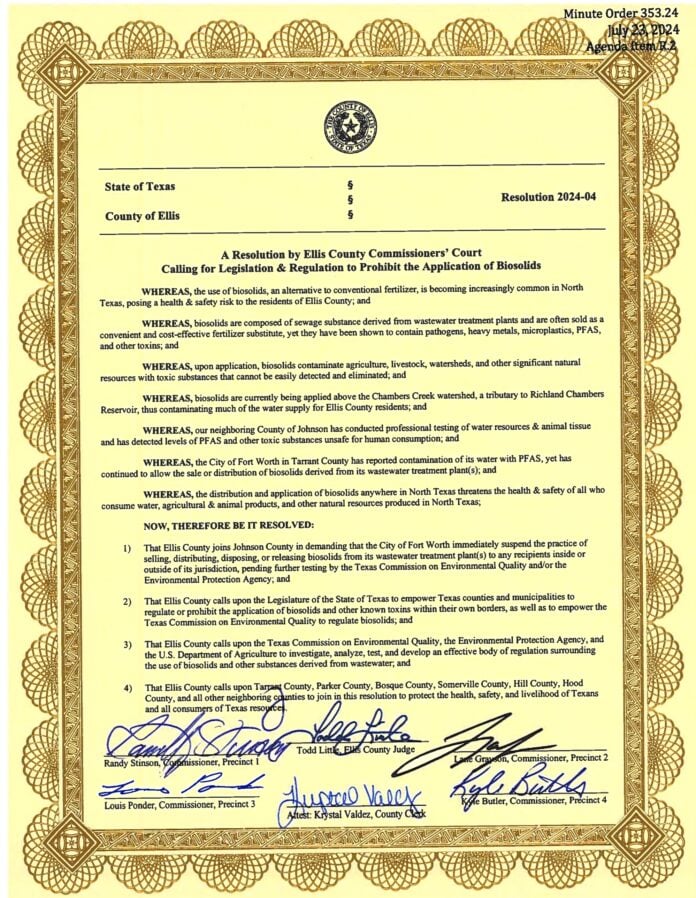Ellis County, TX – At their July 23rd meeting, Ellis County Commissioners joined Johnson County in a resolution calling for regulation and legislation to restrict the application of biosolids, a fertilizer substitute derived from wastewater that has been shown to contaminate water resources and livestock animal tissue with hazardous toxins.
Currently, the City of Fort Worth is selling or disposing of biosolids from its wastewater treatment plants to recipients in Johnson County above the Chambers Creek watershed, which has tributaries that affect Ellis County’s water supply.
Ellis County Judge Todd Little explained, “this has been an ongoing investigation, but we take it absolutely seriously because the health & safety of our residents is our number one concern.” Commissioner Louis Ponder, who presented the resolution in court, provided further context: “Commissioner Perry…was a big proponent of stopping the application of bio-sludge or biosolids…As Commissioner Perry said, ‘Ellis County should not be Dallas or Tarrant County’s toilet.’”
Biosolids are produced at wastewater treatment plants and are often distributed as a convenient and cost-effective alternative to traditional fertilizer, but biosolids are known to contain pathogens, microplastics, PFAS, heavy metals, and other toxins that are difficult to detect, yet hazardous to health.
After complaints over the application of biosolids by local residents, who reportedly could see piles of biosolids literally steaming in the sun, Johnson County conducted professional testing that revealed unsafe levels of these toxins in its water supply and livestock
animal tissue. Soon thereafter, Johnson County commissioners passed a resolution calling upon state and federal policymakers to address this urgent health & safety issue.
Ellis County’s resolution makes four specific requests: 1) that the City of Fort Worth suspend the practice of selling or distributing biosolids until further investigation by the Texas Commission on Environmental Quality (TCEQ) and/or the Environmental Protection Agency (EPA); 2) that the Legislature empower Texas counties and municipalities to regulate or prohibit the application of biosolids and other toxins; 3) that the TCEQ, the EPA, and the U.S. Department of Agriculture investigate, analyze, test, and develop and effective body of regulations surrounding the use of biosolids and other substances derived from wastewater; and 4) that neighboring counties join in the resolution to protect the health, safety, and livelihood of Texans and all consumers of Texas resources.













